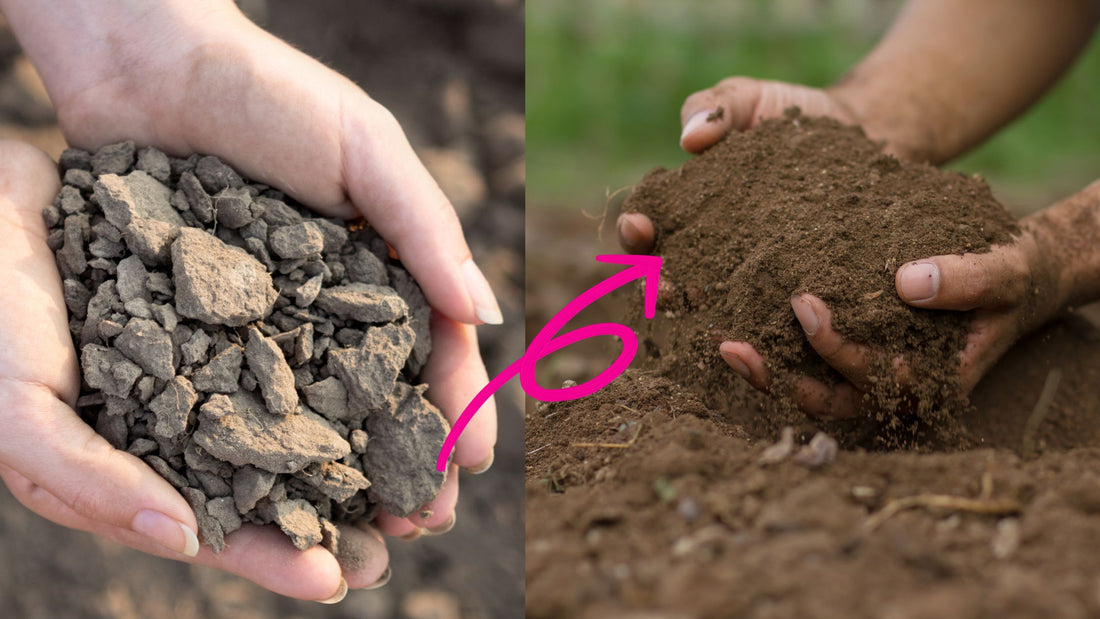
Soil Degradation in India: Why Simply Adding Manure Isn't Enough
Share
Indian farmers have relied on the land for centuries, but in recent decades, our soils have suffered. Intensive farming practices, overuse of certain fertilizers, and climate stresses have taken their toll. While organic manure is essential, a broader approach is needed to truly restore India's agricultural heartland.
What is Soil Remediation?
Soil remediation goes beyond adding nutrients. It's a set of practices designed to revitalize the entire soil ecosystem, removing or reducing harmful pollutants, boosting organic matter, and supporting thriving soil life.
A Multi-Pronged Approach for India's Soil
1. Building Healthy Organic Matter
- Compost Power: Large-scale composting of agricultural waste, food scraps, and livestock manure is essential for producing nutrient-rich soil amendments.
- Harnessing Biochar: Research into the use of biochar – charcoal produced specifically for soil health benefits – offers the potential to improve fertility, water retention, and address soil contamination.
- The Benefits of Cover Crops: Growing legumes between primary crops adds nitrogen, replenishes organic matter, and protects the soil from erosion.
- Rethinking Tillage: Minimizing soil disturbance through no-till or conservation tillage helps preserve the natural structure of the soil, retaining organic matter and moisture.
2. Nurturing the Soil Microbiome
- Vermicompost Wonders: Promoting vermicompost, which introduces beneficial earthworms, enhances soil structure, nutrient cycling, and overall health.
- The Power of Microbes: Developing location-specific microbial inoculants, tailored to India's diverse soils, can replenish nitrogen-fixing bacteria, promote nutrient availability, and support robust plant growth.
3. Integrated Nutrient Management (INM)
- Balancing Act: INM combines the best of both worlds: organic amendments to build soil health, and targeted, science-informed use of synthetic fertilizers to address specific deficiencies.
- Power in Soil Testing: Understanding your soil's unique needs allows for optimum nutrient management, minimizing fertilizer overuse and its negative impacts.
4. Smart Soil Amendments
- Biofertilizers: A Natural Boost: Using biofertilizers with nitrogen-fixing and phosphate-solubilizing bacteria can reduce reliance on chemical fertilizers while building soil fertility naturally.
- Tackling pH Imbalances: Lime is used in acidic soils and gypsum in sodic soils, making them more hospitable for plants and improving long-term soil health.
5. Empowering Farmers, Empowering the Soil
- Knowledge is Power: Educating farmers about sustainable soil practices, benefits of INM, and how to revitalize their fields is critical.
- Government Support: Incentives and subsidies for adopting organic methods, setting up compost pits, or vermicompost units can encourage widespread change.
6. Investing in the Future: Research & Innovation
- Climate Resilience: Supporting research on climate-smart agriculture will develop practices specifically to protect Indian soils against droughts, floods, and weather extremes.
- Tailored Solutions: Finding the best soil remedies requires research based on India's vast diversity of soil types, crops, and climates.
Working Together for the Future of Indian Agriculture
Soil remediation isn't about a quick fix. It demands a collaborative effort involving farmers, policymakers, researchers, and extension services. By respecting the soil and nurturing it strategically, we secure a healthier and more food-secure future for India.










